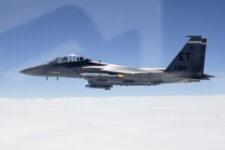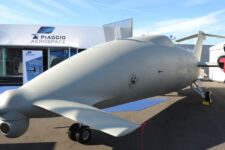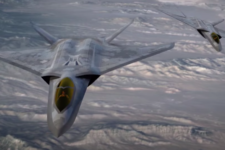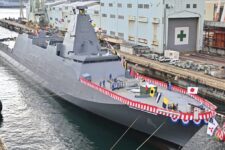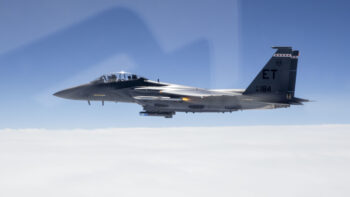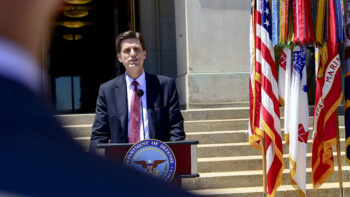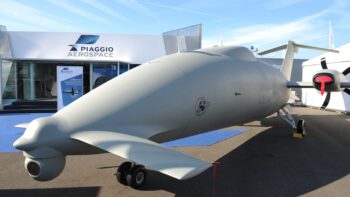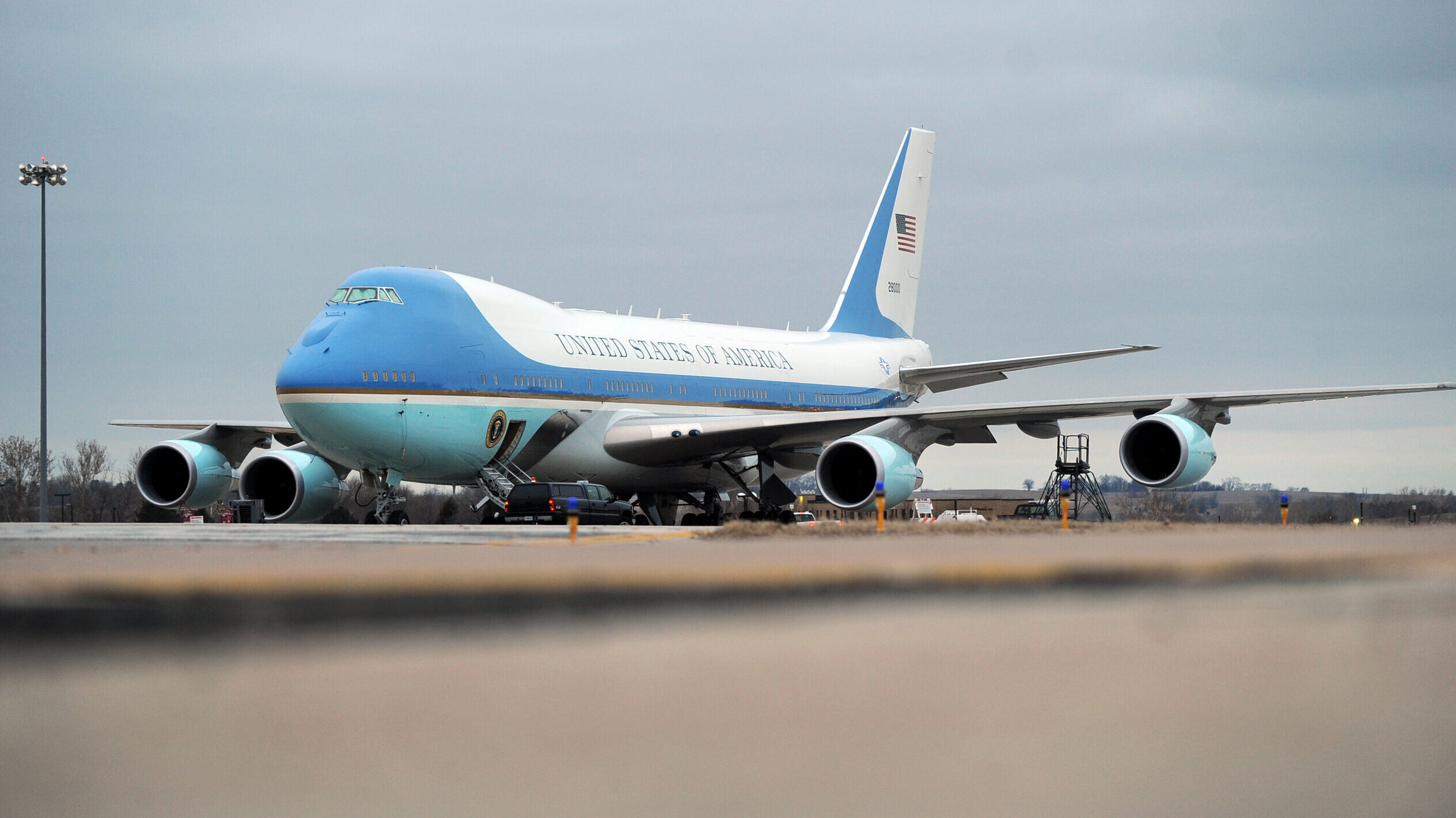
A VC-25A Air Force One aircraft sits on a ramp at Offutt Air Force Base, Nebraska during a brief stop Jan. 22. The aircraft is one of two modified Boeing 747 Airliners that serve as a transport aircraft for the President of the United States. (U.S. Air Force Photo by Josh Plueger/Released)
WASHINGTON — Boeing’s long-delayed Air Force One replacement, known as the VC-25B, is facing new headwinds as the first flight for the program has now been pushed back another 16 months to March 2026, an Air Force spokesperson told Breaking Defense.
Although the program’s schedule was rebaselined in 2022, it appears even more delays lay ahead. According to a previous report in Bloomberg, the program was tracking delays on top of previous schedule slips for two key objectives. The first is to “power on” the first aircraft, which consists of ground-based testing of subsystems and was most recently planned for last month. The second is the aircraft’s first flight previously expected in November of this year, according to Bloomberg.
But the Air Force now expects the power on step won’t be reached until July 2025, and that the first flight won’t take place until March 2026. Officials expected the program to be about two-to-three years late under the revised 2022 schedule, which set the delivery of the first jet for September 2026 but with a year of schedule margin. The second was set to be delivered in February 2027 but with a full year of wiggle room.
Boeing is once again “in the process of updating” the program’s schedule, the Air Force spokesperson said, “which may result in changes to any dates provided.” The next schedule update is anticipated later this summer, they added, and it’s not clear what impact this may have on expected delivery dates. Boeing declined to comment.
Alongside staggering losses on programs like the KC-46A refueling tanker, the VC-25B program has been a poster child for what Boeing executives have admitted were ill-advised, fixed-price agreements with the Pentagon. Negotiated under the Trump administration with previous company leadership, incumbent CEO Dave Calhoun told investors in 2022 that the VC-25B program represented “a very unique set of risks that Boeing probably shouldn’t have taken.”
Boeing has lost over $2 billion to date on the presidential airlift recapitalization effort alone. The aerospace giant was originally expected to deliver the first airplane this year.
Issues like workforce disruptions previously prompted the schedule rebaseline for the behemoth effort to militarize two commercial 747s. The program experienced a major disruption when a subcontractor hired to furnish the jets’ interiors went bankrupt and Boeing had to transition to a new supplier. Pandemic impacts on the labor force, such as stiff competition for workers, also hampered Boeing’s plans. The company additionally had to confront a peculiar workforce issue where certain employees didn’t have proper clearances but worked on the program anyway, prompting Pentagon scrutiny.
There have also been developmental woes, the Government Accountability Office reported last year. For example, “Boeing identified a large number of unexpected design errors, which led to suspension of wiring fabrication in March 2022,” the watchdog found.
State approves $3.64B sale to Japan of air-to-air missiles
The possible sale of the RTX-made AMRAAMs includes up to 1,200 missiles.
